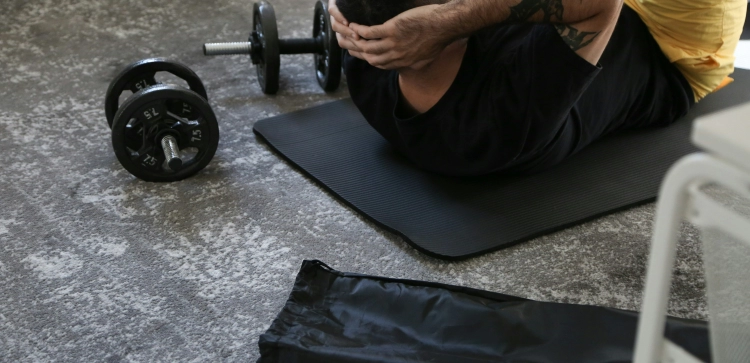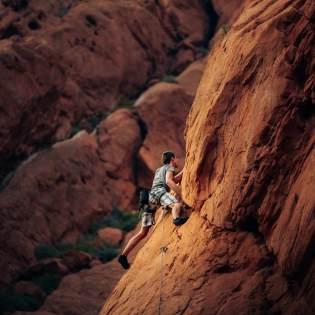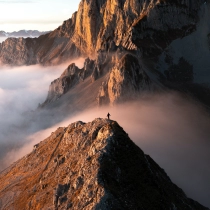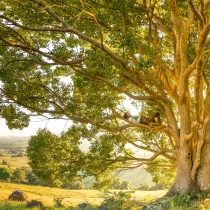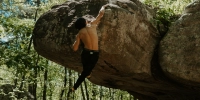

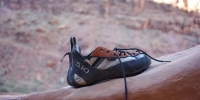




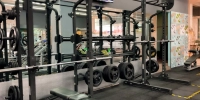
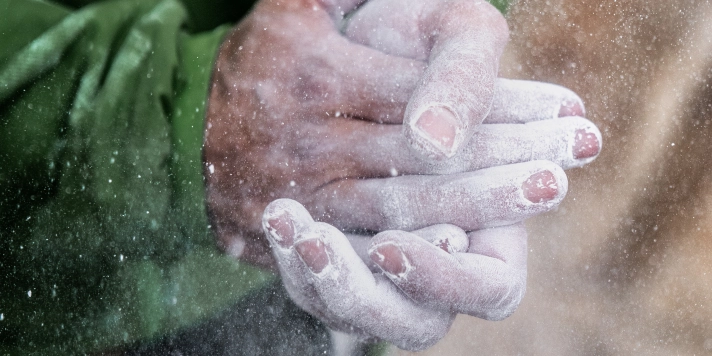
general climbing
It helps us prevent skin injuries such as tears and flappers. if the skin is rough, it can get caught on holds and could tear, which can be a nightmare for climbers.
Filing rougher and bulgy areas of the skin helps prevent this.
They "go" in a bag or some kind of container, keep it with them until they get down from the route (or up), and then throw it away when they can.
Before lead climbing, you should at least have some experience in climbing and know the basics. Depending on how and where you want to learn lead climbing, you may be required to have some climbing experience. This experience could be a certain amount of time climbing, climbing to a certain grade, or just being familiar with climbing in general, climbing holds, and how to move on the wall. Some places are stricter than others.
If you really want to start off well, it is recommended that you get used to climbing before. This can either be from top rope, some sort of auto-belay device, or bouldering. The more experience you have with climbing, the better and easier it will be to learn lead climbing.
In terms of what level you should be climbing before you can do lead climbing, there is no rule for this. Even if you are a beginner climber, you can lead climb. Still, it is recommended to have experience in climbing before starting with lead climbing.
Climbing very often puts your body in strange and difficult positions, regardless of the type of climbing. These positions can sometimes be quite scary to be in, especially when including the element of height.
In bouldering, being almost vertical to the ground for certain routes at even a few meters off the ground can be scary, even more so in a sport or lead climbing route, where you may be over 10 meters off the ground.
Many people actually realize that they have a hidden fear of heights that only comes out while they are climbing. The different body positions you put yourself in to climb the different routes adds to the overall fear, and makes the situation that much more scary.
California is home to some of the greatest climbing destinations in the USA and in the word. Such places include Yosemite National Park, Joshua Tree National Park, Bishop, and The Needles. All of which are immensely popular climbing destinations for all types of climbing, including Bouldering, Sport Climbing, Trad Climbing, and of course, maybe very much thanks to Alex Honnald, Free-soloing. Though free-soloing was popular before, the documentary Free-Solo about Alex Honnald really gave this form of climbing, and the location, a boost in popularity.
In addition to California, there are other states and climbing destinations that are as popular as California, such as:
Red Rock, Nevada
Indian Creek, Utah
Zion National Par, Utah
Index, Washington State
Adam Ondra is the one most consider as the best climber in the world.
He started climbing when he was just 3 years old, and onsighted a 7b+ when he was just 8 years old.
His climbing future was just as bright, and at that early age became one of the top names in the climbing community.
Over the course of less than 20 years, he has climbed over 1550 routes that are graded 8a and above, including the world's first ever proposed 9c. Out of those routes, he has onsighted over 720 of them.
He has had enormous success in climbing competitions, and has even competed in the first ever Olympic climbing event. Though he came in at 6th place and did not take home a gold medal, he is still considered to most people as the best climber in the world.
This question has been debated a lot, and will continue to be debated, as there are many other climbers that people consider to be the best, but by far Adam Ondra is the one the majority see as the best in the sport.
There is no definitive amount of times someone can climb per week. It just depends on each person, as each person has their own fitness level and athletic history.
When I started climbing, I climbed around 4 times per week, each session was 4-5 hours long. Needless to say, I injured myself. I toned it down a lot to just 2-3 times per week at most, and also took some time off here and there to give my injuries and muscles more time to recover.
After this, I create a better schedule of climbing 2-3 times per week, for around 2-3 hours each time. I came from a background of weight training for quite a few years. This did help with my climbing as I was able to pretty quickly progress to v6, but, I did overdo it in the beginning. With my new schedule, I was injury free and haven't been injured since.
So even if you have background in something, or you are generally fit, you can still very easily overdo it. Climbing is different from most sports, it uses your muscles differently, so it is just very easy to overdo it.
The best way to know how often you should climb per week is to just listen to your body, pay attention to it, and don't ignore the signs. If you do, the next time you get another sign may be too late.
If the blister is not that big, then I just put a band-aid on it and wrap it in tape so the band-aid stays in place, and that's it. If the blister is big and not popped, I usually wait a day or two before climbing.
I prefer to not pop blisters, so I just usually wait until it either pops anyway, or until it goes down in size to the point where I can climb with it. During those days I would normally do some weight training.
If you have ever played a strategy game in which you need to level up, then you can understand how the difficulty works with climbing as you progress.
In strategy games, it is very easy to level up in the beginning, you can usually go up quite a few levels very quickly, but, as you go up in levels, the difficulty between each level increases. By the time you get to what is considered a high level for the game, going up even a single level can take a long time.
The same applies to climbing. In the beginning, new climbers would start climbing v0, which would be considered the easiest grade, but, they would very quickly also be able to climb v1, v2, and even go up to v3 and v4. But, as they go up in the grades, it will be harder and harder to get to the next ones. Beginners may be able to climb some v4s in their first session, but the difference between v8 and v9 is quite huge and will take a lot more time to make the progression, and the difference gets larger and larger as the grades go up.
Think about the fact that the hardest and highest graded route at the time of writing this is a proposed v17. Proposed means that it is not for sure a v17, but the climber who climbed it believes it to be. 17 is not a very high number in general, and not much higher than 10, but the differences between a v10 route and a v17 route are pretty unimaginable for someone who is a v10 climber.
Rock climbers shake their arms as a way of recovering during a route or in between routes. The purpose of this is to reduce the lactic acid build up in their forearms, which is referred to as being pumped.
There is quite a bit of controversy over the effectiveness of shaking your arms to help recover as there doesn't seem to be a definitive answer regarding if it actually works, and how. Many believe that it is better to shake your arms while they are above your heart or head, while many believe that it is better to do it when your arms are down beside you. Some also believe that shaking your arms doesn't have any effect at all, regardless of where or how you shake them.
Many climbers use a combination of the two methods, they shake their arms above their heads, and below, to their sides.
Some also believe that the effects of shaking your arms are mainly psychological, and that they don't have any physical effect or benefit.
